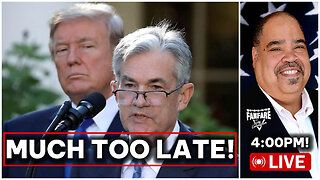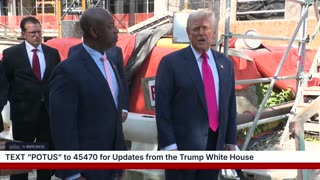Premium Only Content

Ministry of Information and Broadcasting warns media platforms crimes against India.
The India-Canada diplomatic crisis has taken a new turn as the Indian Ministry of Information and Broadcasting issued a stern warning to TV channels and media platforms. This directive came swiftly on the heels of India's decision to temporarily suspend visas for Canadian citizens due to perceived security threats against its high commission and consulates in Canada.
The Ministry's Warning
The Ministry of Information and Broadcasting in India minced no words in its warning to media platforms. It emphasized the need to exercise caution and responsibility when extending invitations to individuals who are accused of crimes against India. The message was clear: "Don't give a platform to terrorists."
The Diplomatic Crisis Context
The backdrop to this warning is the ongoing diplomatic row between India and Canada. The decision to suspend visas for Canadian citizens was made in response to perceived security threats. The exact nature of these threats and the individuals associated with them are yet to be disclosed, but it has undoubtedly heightened tensions between the two nations.
Media's Role in Diplomatic Matters
The Ministry's directive underscores the critical role that media plays in international affairs. It serves as a reminder that the platform extended to individuals, particularly those accused of crimes or involvement in security threats, can have significant diplomatic ramifications.
Balancing Freedom of Expression and National Security
This situation raises questions about the delicate balance between freedom of expression and national security. While freedom of the press is a fundamental democratic principle, governments also have a responsibility to protect their citizens and national interests. Striking this balance is often a complex and contentious task.
International Implications
The India-Canada diplomatic crisis is not limited to bilateral relations. It has international implications, as it involves two countries with significant global influence. The response of media platforms to the Ministry's warning will be closely watched by the international community.
The Way Forward
As the India-Canada diplomatic crisis continues to evolve, it remains to be seen how media platforms will respond to the Ministry's warning. The situation underscores the importance of responsible journalism and the need for media outlets to carefully consider the potential consequences of their actions in sensitive diplomatic matters.
In conclusion, the Indian Ministry of Information and Broadcasting's warning to TV channels and media platforms reflects the seriousness of the ongoing diplomatic crisis with Canada. It highlights the delicate balance between freedom of expression and national security and underscores the pivotal role of media in shaping international relations. The world will be watching as events in this diplomatic dispute continue to unfold.
-
 LIVE
LIVE
Robert Gouveia
1 hour agoCongress HAMMERS Epstein Files! Maxwell APPEAL Decision! Obama Suspects LAWYER UP! 14th Amendment!
1,231 watching -
 LIVE
LIVE
Barry Cunningham
3 hours agoPRESIDENT TRUMP TOURS JEROME POWELL SCENE OF THE CRIME AT THE FEDERAL RESERVE
1,777 watching -
 1:25:14
1:25:14
Sarah Westall
2 hours agoBlackmail, Power & Corruption: The Currency of the Empire - Epstein & more w/ Joachim Hagopian
5.75K4 -
 16:33
16:33
Clownfish TV
7 hours agoLate Night TV Has NO FUTURE After Stephen Colbert's Cancellation!
7517 -
 45:56
45:56
The White House
3 hours agoPresident Trump Visits the Federal Reserve
19.2K19 -
 36:14
36:14
Kimberly Guilfoyle
4 hours agoRussia Hoax Reality Check, Live! | Ep240
17.5K10 -
 11:02
11:02
Preston Stewart
7 hours ago $0.18 earnedThailand–Cambodia Clash Erupts
3.5K3 -
 LIVE
LIVE
LFA TV
21 hours agoLFA TV ALL DAY STREAM - THURSDAY 7/24/25
1,054 watching -
 1:07:35
1:07:35
vivafrei
4 hours agoWall Street Journal DOUBLING DOWN on Epstein! Lawyer in Canada DEBANKED! AND MORE!
99.6K33 -
 4:42:20
4:42:20
Donut Operator
7 hours agoI'M BACK/ CRIME/ GAMEBOY CAMERA CHAD
100K5